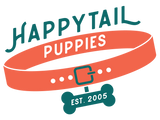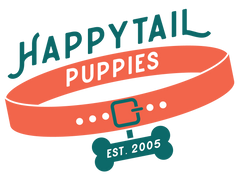Can I Give Milk to My Dog? Everything You Need to Know About Milk and Dogs
The dog owners frequently find themselves asking the question, “Can my dog drink milk?” While milk is a normal part of the diet in human beings, its role in health is conventional; in the case of the dogs, the answer is not that easy to come by. It is often a matter of concern across pet parents whether it is safe to give dogs cow's milk, almond milk, or milk that is free from lactose. In our post, we are going to dig deeper into our topic and whatever the dog owners should know about giving milk to their furry companions.
Can I Feed Milk to My Dog?
Although dogs might enjoy the taste of milk, it does not mean that it forms an essential part of their diet. Several dogs, like Miniature Dachshunds or Yorkshire Terriers, are lactose intolerant as they lack the enzyme required for breaking down the lactose present in milk. It leads to digestive issues involving diarrhea, bloating, gas, and vomiting.
The main concern related to feeding milk to adult dogs revolves around the element of lactose intolerance. Puppies, similar to mammals, generate lactase in their early life and help to digest their mother's milk; however, the production of the enzyme reduces as they start to age. Consequently, adult dogs often grapple with processing lactose effectively. Although a few dogs might tolerate occasional milk without revealing the signs of any distress, dogs experience mild to serious gastrointestinal discomforts when offered in larger quantities.
Yet another issue with the consumption of milk in dogs is its fat content. Regular consumption of fatty milk contributes to obesity, which leads to other health-related issues like heart disease, joint issues, and diabetes. For these reasons, milk is offered as an occasional treat, and dog owners should monitor for signs of lactose intolerance.
Can a Newborn Puppy Drink Regular Milk?
One of the primary worries across the minds of pet owners is whether cow’s milk is the best to give your pup or not. A puppy should never be given regular milk, mainly cow's milk. These puppies have their distinctive dietary needs that are often met by the mother's milk during their early nursing stage. When the puppy is orphaned or requires any supplemental feeding, the ideal alternative to offer your pup is the commercial-grade milk replacer that is identical to the nutritional profile of their mother's milk.
Although cow's milk is nutritious for humans, it consists of greater levels of lactose that proves delicate to the digestive system of the puppies and other small dog breeds like Pug or Chihuahua. Moreover, it normally does not contain many other necessary ingredients, which are the proteins, fats, and appropriate vitamins needed by the puppies for proper health, growth, and development. Feeding your newborn pup with cow’s milk constantly leads to instances of diseases of the gastrointestinal tract and malnutrition.During the initial stage of their lives, a proper nutritious diet is important, but not regular milk.
Can I Give Almond Milk to My Dog?
If you are in search of a plant-based alternative to dairy milk, then almond milk is the option for you. It is naturally free from lactose, making it a choice among the dog's parents. The primary question is, "Can I give almond milk to my dog?”. Almond milk forms the safest alternative when given in smaller amounts; however, there are a few essential considerations before you give it to your pup.
Initially, it is important to note that you are choosing unsweetened almond milk as several commercial brands consist of artificial flavorings, additives, and sweeteners like xylitol, which is highly toxic for your dogs. Considerably, even smaller amounts of xylitol cause a dangerous drop in blood sugar levels, leading to significant liver damage. Check out the key ingredient labels before offering almond milk to your furry companion, ensuring no harmful additives are included.
Although almond milk is free from lactose, it is not a requisite addition to the diet of your dog. Dogs often derive all the key nutrients they require from their regular food, with milk alternatives that should never replace a well-balanced diet or water.
Know The Difference Between Wet and Dry Dog Food : Learn More
Can I Give Lactose Free Milk to My Dog?

A few pet parents are sometimes baffled about whether or not lactose-free milk is the ideal food for dogs with digestive disorders. Thus, one can ask himself, “Is lactose-free milk safe for dog consumption?” Lactose-free milk removes the lactose that naturally causes digestive issues in dogs, which makes it the best option.
The owners of the pets might also be interested in knowing if a particular breed of dog is hypoallergenic, such as Mini Aussiedoodles. Pet owners often wonder, “ are Mini Aussiedoodles hypoallergenic?”. Although Mini Aussiedoodles are believed to be a breed that may cause less allergy-provoking reactions thanks to their coat nature, it is pertinent to state that there are indeed other allergies in such dogs, including but not limited to Lactose intolerance. This means that, despite the effects that they may not cause allergies in humans and may even cause digestion-related lactose complications in their owners, they must ensure that they diet wisely.
Even if your pet is okay to some extent with lactose-free milk, it must not be taken frequently. Like any other human food or drink, it may cause vomiting, diarrhea, or even lethargy; therefore, it is advisable to monitor your pet after drinking water sweetened with it. Just like all other processed foods, lactose-free milk should rarely be consumed and only as recommended by the veterinarian.
Are There Any Alternatives to Milk for Dogs?
However, there are better and safer options for dogs than normal milk or a product like almond milk or lactose-free milk. The truth about dogs is that they only require water, and water alone is the best thing they should ever be given to drink. Some owners may go to pet stores to buy milky products specifically for dogs that are not likely to have any bad impact on the dog’s digestive system.
These dog specific milk products have low lactose, added nutritional nutrients recommended for a dog’s health. However, certain foods like yogurt, which is bitter to dogs but full of probiotics, can also be used to treat dogs for their taste buds. If possible, the yogurt should be plain and, as much as possible, free from sweeteners as these contain all sorts of unhealthy facts, such as artificial sweeteners and high levels of sugar.
What About Goat Milk for Dogs?
Another frequently asked question refers to goat milk, which is rumored to be better for the stomach than regular cow’s milk. It is recommended that goat milk is easy to digest since it has a small amount of lactose as compared to Sheep or Cow milk. Goat milk is safe for dogs in moderation, and some people use it as an addition to their dog’s diet or include it in homemade canine diet meals. However, just as with cows’ milk or plant-based milk, it is something that is not necessary for a dog’s diet and should only be given in moderation. Before you introduce goat milk or any other food into your dog’s diet, consult your vet first.
Learn About Diet of Miniature Goldendoodle
Conclusion: Should You Give Milk to Your Dog?
The main factors that may be associated with the ‘can dogs drink milk’ are tolerance to lactose, type of milk, and the quantity of the milk. Some dogs can have a limited amount of Lactose-free milk or even some almond milk. However, there might be some dogs who would have digestion problems as well, even with those. Fresh cow’s milk often provides the wrong nutrition for newborn puppies, and puppy milk replacers should be relied on in this case.
The best course of action is to only feed your dogs milk products in very limited amounts or at all, and check with your vet before introducing any food changes to your pet’s diet. Dogs do not need milk, but they depend on balanced diets from quality dog foods and clean water; milk products or plain yogurts are safer for dogs when pet owners want to give them dairy-based foods occasionally. Lastly, the care and feeding of the dog are highly dependent on the breed, and knowing your specific pet and franchising will be of primary importance, with consultation lasting with the veterinarian.


